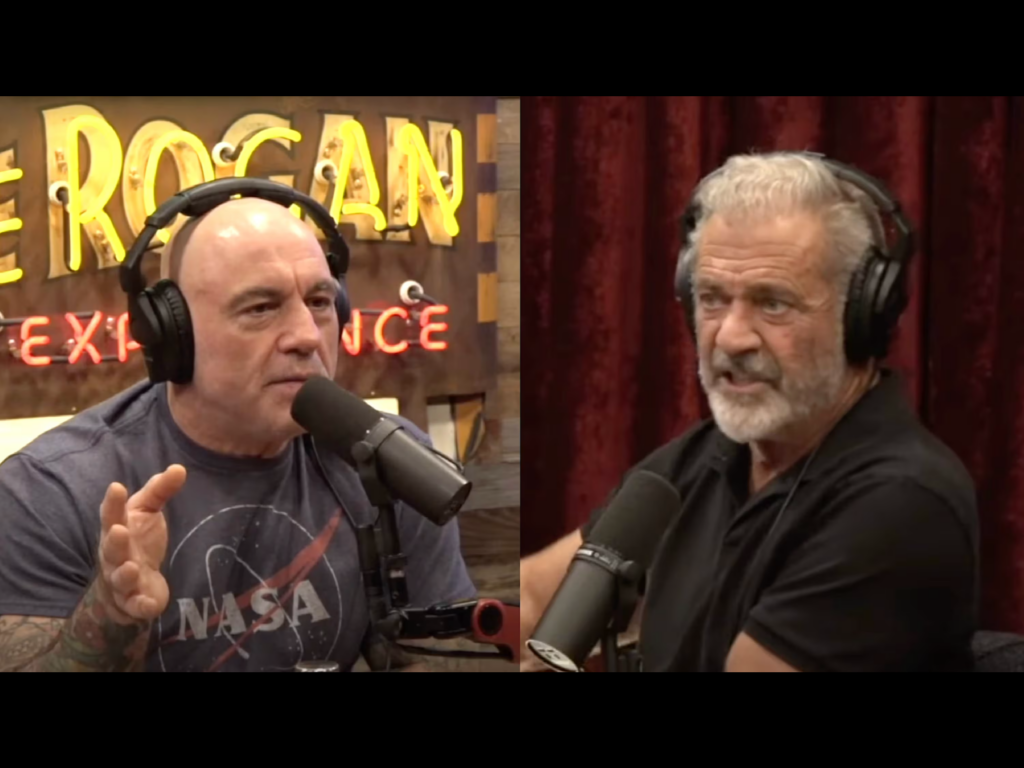Joe Rogan’s trajectory from countercultural comedian to controversial media mogul isn’t just a career pivot. It’s a cautionary tale about the corrupting influence of success.
In the early days, Rogan carved out a unique space in the podcasting landscape. His show was a haven for an eclectic mix of stoners, fighters, and comedy enthusiasts.
The appeal was simple: here was a guy willing to ask questions, challenge assumptions, and occasionally go off on entertainingly absurd tangents about psychedelics or conspiracy theories.
But somewhere along the way, something changed. The platform that once prided itself on authentic dialogue has devolved into an echo chamber of questionable ideas and unchallenged narratives.
Take his sit-down with Mel Gibson. It played out less like an interview and more like a reverent audience with a self-styled prophet. Instead of the probing questions that once characterized his style, Rogan offered only silent nods as Gibson ventured into increasingly controversial territory.
The former UFC commentator who never shied away from calling a fight as he saw it suddenly seemed content to play the role of passive spectator.
His interaction with Donald Trump proved equally revealing. The man who built his brand on being the voice of the everyman transformed into something approaching a courtier, laughing on cue and failing to challenge even the most questionable assertions.
It was a far cry from the Rogan who once prided himself on cutting through artifice and pretense.
Perhaps most telling is the deterioration of his comedy. Rogan’s stand-up, once known for its raw energy and unpredictability, has calcified into a predictable routine of tired culture war grievances and recycled observations.
The edge that once made him compelling has dulled into comfortable mediocrity, protected by the cushion of his massive platform.
The real tragedy isn’t that Rogan has changed his views or evolved his platform. It’s that he’s stopped evolving altogether.
The curious conversationalist who would eagerly dive into any topic has been replaced by a predictable amplifier of whatever his guests bring to the table.
Whether it’s Alex Jones’s conspiracy theories or Gibson’s apocalyptic worldview, Rogan now seems more interested in nodding along than engaging critically.
This transformation speaks to a broader phenomenon in modern media: the way success can paradoxically lead to intellectual stagnation.
With a reported $200 million Spotify deal and millions of devoted followers, Rogan has little incentive to challenge himself or his audience. He’s found a profitable formula and stuck to it, even as it strips away the very qualities that made him interesting in the first place.
The tragedy isn’t that Rogan has changed; it’s that he’s become exactly what he once railed against: a gatekeeper more interested in maintaining his position than pursuing genuine dialogue.
The Joe Rogan Experience has become exactly that—an experience, a bloated, carefully curated product designed to validate rather than challenge its audience.

